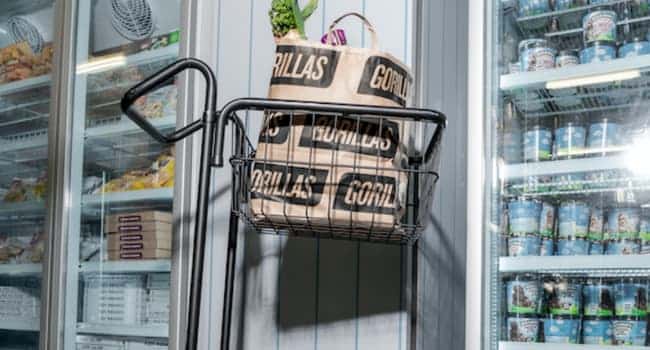Across the spectrum of over- highly-valued tech startups, the sudden shift from “Growth at all costs!” to “Just make money, will you!” has left many a founder’s head spinning.
In no other sector may this be more so than in quick commerce.
We’ve followed the saga of German quick commerce startup Gorillas pretty closely over the past year. The company raised $1 billion last October. Gorillas has raised a total of $1.3 billion since the company launched in Berlin in 2020. And even then, observers were raising questions about the viability of quick commerce. Or at least its ability to sustain so many competitors.
Gorillas model, and that of its many competitors, involved building strategically located micro warehouses in the markets it served. Then it would deliver groceries and sundries on demand to consumers within a prescribed time period. And the more competitive a market, the more pressure to compress that period of time. Before recently and quietly removing that pledge from its website, Gorillas was down to just 10 minutes.
Rotting Bananas
A recent article in Wired illustrates how poorly the quick commerce model is performing. At least for Gorillas in the markets it has already slated for closing.
In June, the company shuttered its Belgian operation just one year after launching there. Costs were reportedly very high in Belgium (largely because riders were directly employed in that market) and demand was extremely low. The Wired story shares the vivid image of rotting bananas, illustrating just how badly Gorillas overestimated demand. Denmark, Spain, and Italy are next on the chopping block.
Leaving Belgium means shutting down six warehouses and letting 200 employees go. Gorillas has reportedly urged its employees in Spain to look for new jobs and will soon shutter that operation barring the emergence of a buyer or investor.
According to Sifted, Gorillas is also shutting down Street Fleet, a German subsidiary that outsources riders to Gorillas, Delivery Hero, and other food delivery and quick commerce players.
It’s important to note that Gorillas isn’t the only quick commerce player in trouble. Getir and Zapp are also dramatically reducing costs by slashing headcount and exiting unprofitable markets.
Shift to Long-Term Profitability
The company says the retrenchment is about a “strategic shift to long-term profitability.” The company says it will be profitable at a group level in a year. It’s not unfair to ask if it has that much time. Also unclear is how much cash the company has on hand. It did raise $1 billion less than a year ago. At the time, Gorillas’ valuation was $3 billion. We don’t imagine it has grown since.
In May, we reported that the company had about $300 million on hand. That’s an epic burn rate. However, the company has been cutting costs, including lopping off 300 HQ workers earlier this year in addition to shuttering the money-losing markets.
The notion that there had to be a pivot to focus on long-term profitability highlights just how quickly things have changed. When it launched, it’s probably safe to assume that few if any whiteboard discussions in Berlin focused on long-term profitability. The conversations were no doubt about growing fast, gaining share, and not worrying too much about broken eggs (or rotten bananas) along the way.
As is often the case (just Google “European Scooter Wars”) there was no shortage of warning signs for the near-collapse we are now witnessing in the quick commerce space. The race to offer the shortest delivery time was probably the best signal that there was too much competition. The startups flooding into cities across Europe (and the world) vastly overestimated the level of consumer demand for the 10-minute delivery of beer and bananas in a post-covid environment. And now the expected reckoning is in full swing.





